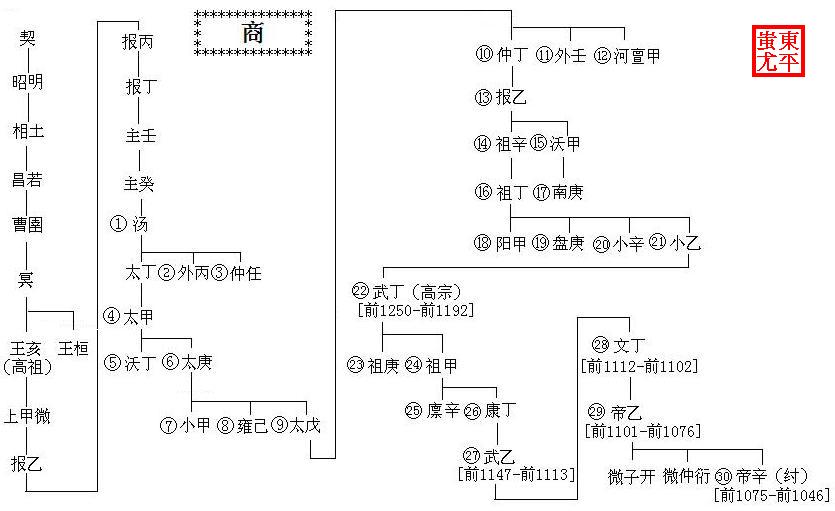Shang Dynasty
商朝
Political History
政治状况
The Shang Dynasty was the second monarchical state in Chinese history.
商朝是中国历史上第二个君主制国家。
Tang, the founder of Shang, having drawn lessons from the ruin of the previous dynasty,
汤——商朝的创立者,从前朝的覆灭中吸取了教训,
treated his people benevolently and employed many able and virtuous ministers.
仁慈地对待他的臣民,并任用有能力且有德行的官员。
The Shang made great progresses in its economy during the reign of Tang.
商朝在汤在位期间在其经济上取得了长足的进步。
While, due to political struggle for power in the imperial court and continuous wars with frontier tribes, Shang state moved its capital five times.
同时,由于朝廷内对于权力的政治斗争和与外部的不断战争,商朝曾五次迁都。
The most notable move was during the reign of King Pangeng, the seventeenth king of the Shang.
其中最著名的一次是在盘庚——商朝的第十七任君主在位期间。
He reestablished the capital at Yin, in the neighborhood of present Xiaotuncun, in Anyang City of Henan Province.
他将都城重新迁回殷,也就是今天的河南省安阳市小屯村附近。
The new capital contributed a lot to the stable government of the Shang Dynasty afterwards.
新的都城后来对于商朝政府的稳定起到了很大作用。
Once the successful new capital was established, it did not change throughout the remainder of the Shang Dynasty.
新都一旦确立,商朝就再也没有改变过都城。
Therefore, the Shang Dynasty is often called “the Yin” or “the Yin-Shang Dynasty”.
所以,商朝常常被称为“殷”或是“殷商”。

Another renowned Shang ruler was Wuding, the nephew of Pangeng.
商朝另一个著名的君主是盘庚的侄子,武丁。
He was an aspirant and benevolent king and always endeavored to make his kingdom strong.
他是一个有抱负的人也是一个仁慈地君主,他总是致力于让国家更加强大。
Under his leadership, the empire of Shang made great achievements in its economy, which laid a foundation for the continuous development of following dynasties.
在他的领导下,商朝在经济上取得累累硕果,这也为之后的朝代奠定了基础。












